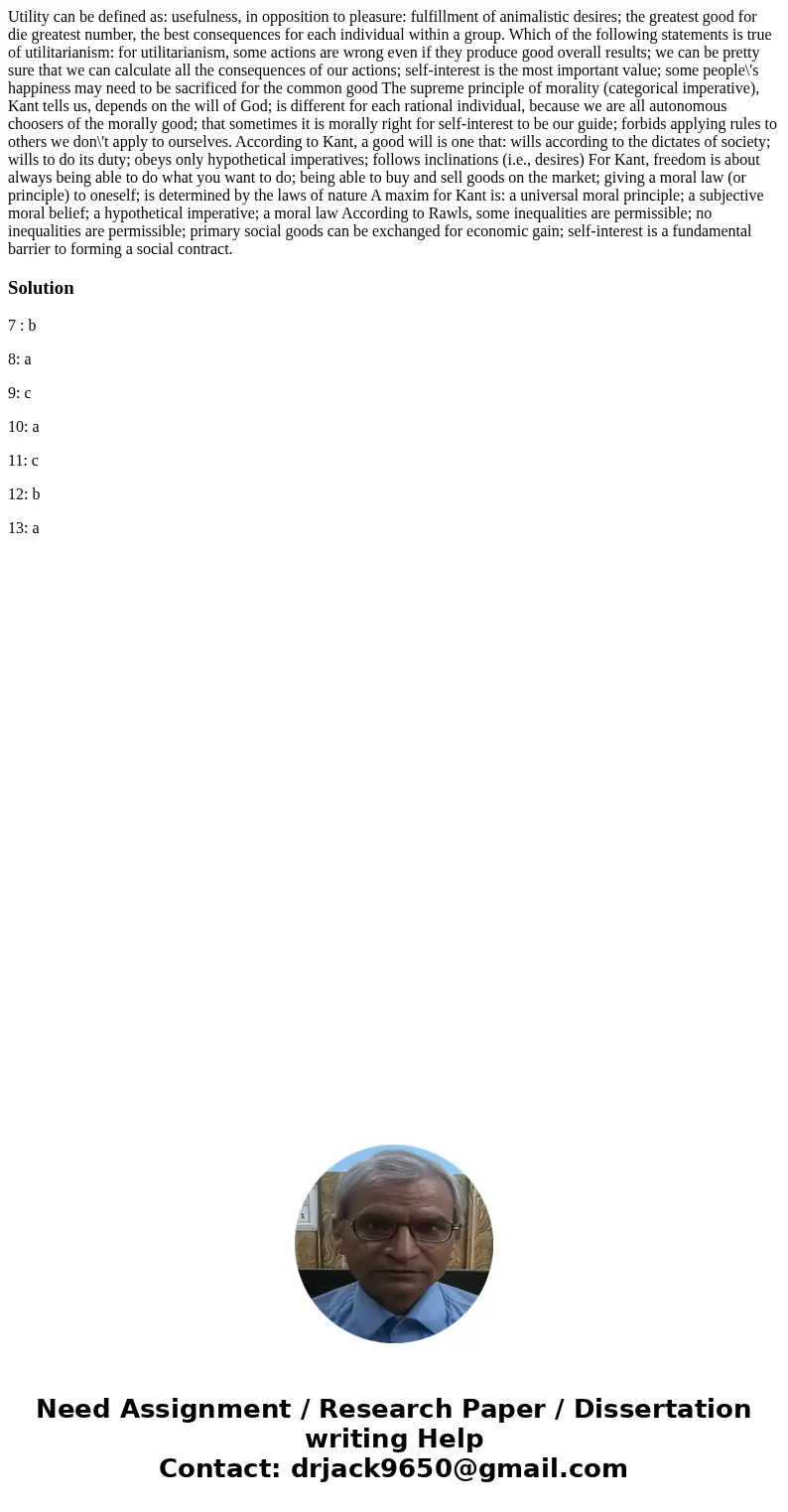Utility can be defined as usefulness in opposition to pleasu
Utility can be defined as: usefulness, in opposition to pleasure: fulfillment of animalistic desires; the greatest good for die greatest number, the best consequences for each individual within a group. Which of the following statements is true of utilitarianism: for utilitarianism, some actions are wrong even if they produce good overall results; we can be pretty sure that we can calculate all the consequences of our actions; self-interest is the most important value; some people\'s happiness may need to be sacrificed for the common good The supreme principle of morality (categorical imperative), Kant tells us, depends on the will of God; is different for each rational individual, because we are all autonomous choosers of the morally good; that sometimes it is morally right for self-interest to be our guide; forbids applying rules to others we don\'t apply to ourselves. According to Kant, a good will is one that: wills according to the dictates of society; wills to do its duty; obeys only hypothetical imperatives; follows inclinations (i.e., desires) For Kant, freedom is about always being able to do what you want to do; being able to buy and sell goods on the market; giving a moral law (or principle) to oneself; is determined by the laws of nature A maxim for Kant is: a universal moral principle; a subjective moral belief; a hypothetical imperative; a moral law According to Rawls, some inequalities are permissible; no inequalities are permissible; primary social goods can be exchanged for economic gain; self-interest is a fundamental barrier to forming a social contract.
Solution
7 : b
8: a
9: c
10: a
11: c
12: b
13: a

 Homework Sourse
Homework Sourse